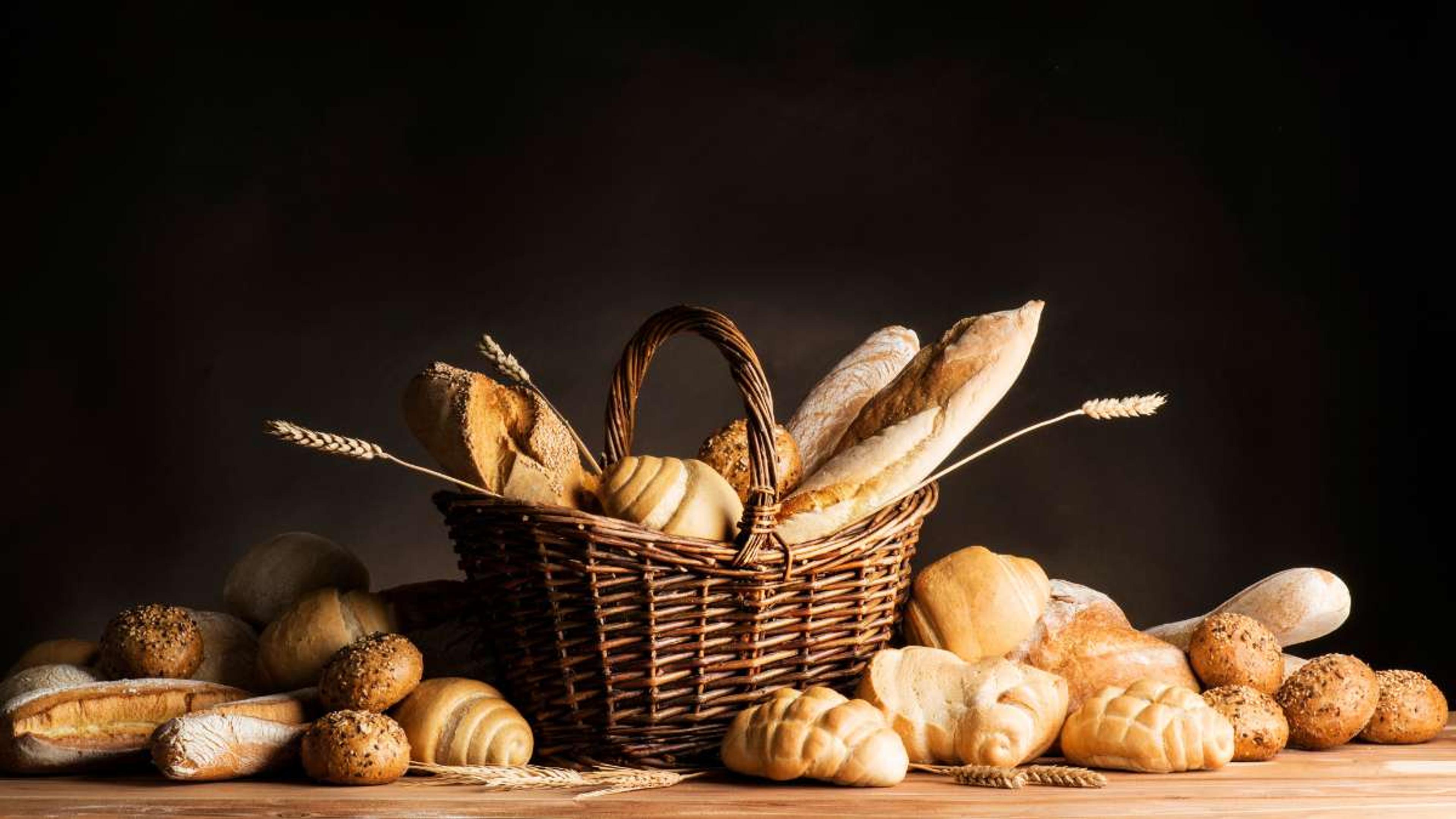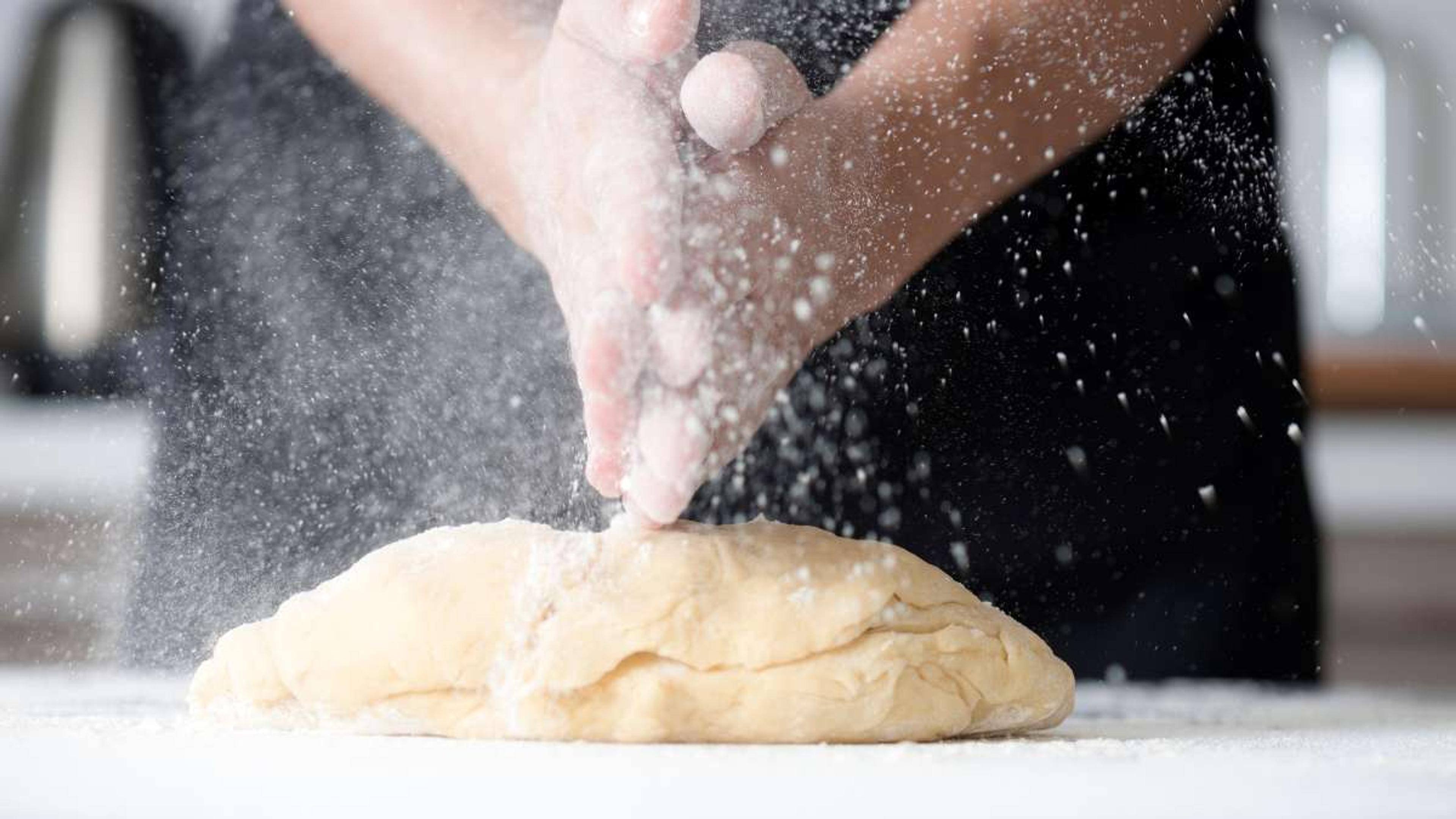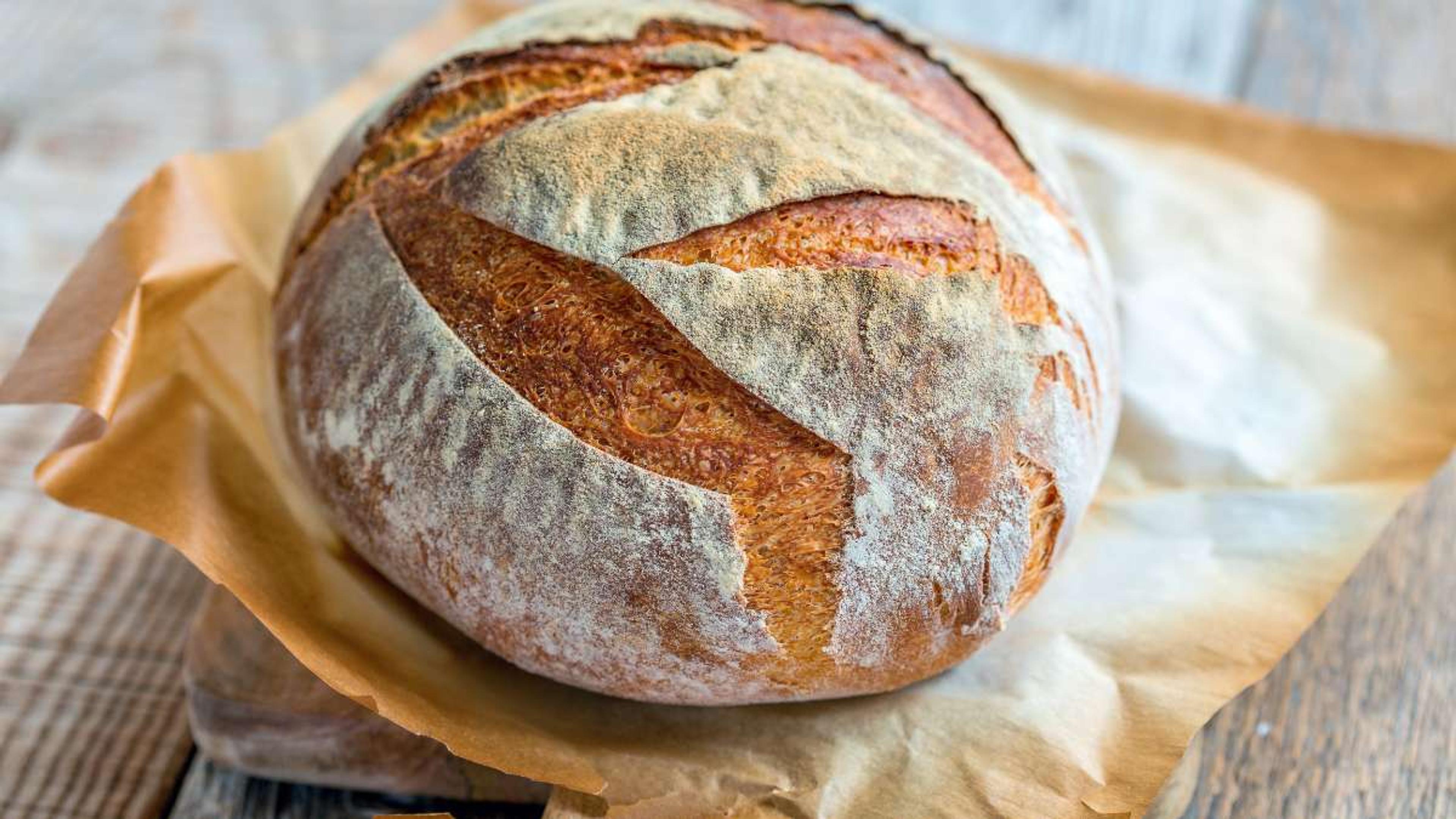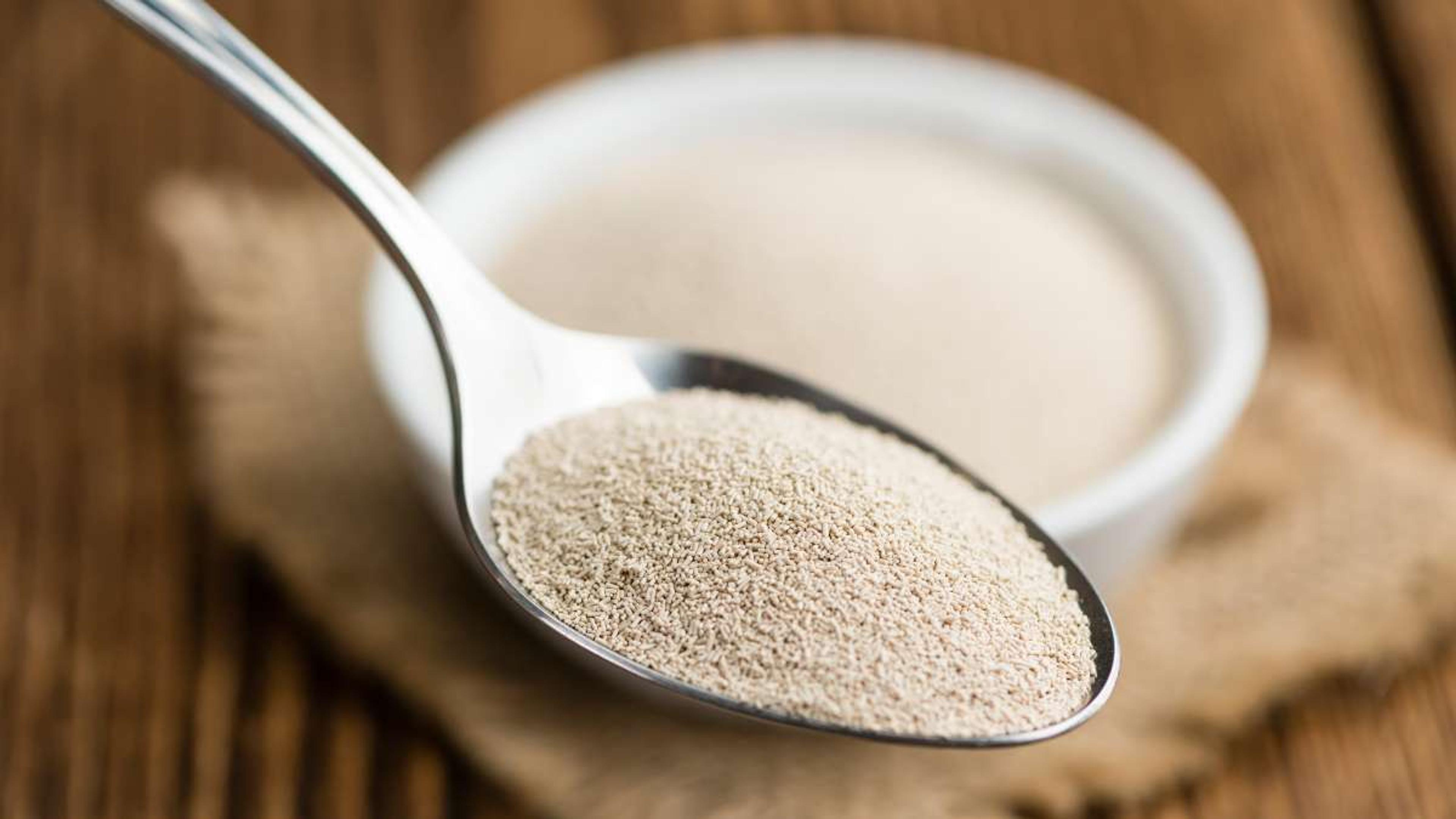Is Bread Vegan? Here's What You Need to Know

- Key Takeaways
- Defining Veganism
- Basic Ingredients of Bread
- Non-Vegan Additives in Bread
- Vegan Bread Alternatives
- Making Vegan Bread at Home
- The Controversy Around Yeast
- Conclusion
- FAQs
Are you a vegan or considering adopting a vegan lifestyle? If so, you may be wondering if bread is vegan-friendly. The good news is that most bread is made from simple ingredients like flour, water, salt, and yeast, which are typically vegan.
However, there are some non-vegan additives that can sneak their way into certain bread varieties. In this blog post, we'll explore the world of bread and help you identify which types are truly vegan. Get ready to discover delicious options for your plant-based diet!
Key Takeaways
- Most bread is vegan-friendly, as it is made from simple ingredients like flour, water, salt, and yeast.
- However, some bread varieties may contain non-vegan additives such as dairy products (milk, butter), eggs, or honey. It's important to carefully read the ingredient list to ensure that the bread is vegan.
- There are now many vegan-friendly bread options available in stores and bakeries. Additionally, you can make your own vegan bread at home using substitutes for non-vegan ingredients like flax seeds instead of eggs and plant-based milk instead of dairy milk.
Defining Veganism
Veganism pushes away all animal products. This means no meat, eggs, dairy, or other things from animals can be in a vegan diet. People who are vegan eat only plant-based foods. They love fruits, nuts, grains and vegetables for their meals.
A good thing about this way of eating is it helps make blood health better by lowering bad cholesterol. Despite what some think, vegans can get plenty of protein if they eat a wide range of plant foods!
Bread as a Staple Food
Bread is a big deal in many parts of the world. It has deep roots in history and culture from the West to Asia. Many meals can't start without it! Flatbreads, savory breads, and dry breads are common types.
Most times they are vegan which means they have no animal parts. This makes them loved by people who follow a plant-based diet. But not all breads stay true to this form. Some kinds like brioche get fluffy but may use milk or eggs so vegans can't eat them.
Basic Ingredients of Bread
Bread is made from simple ingredients like flour, water, salt, and yeast. Learn more about the vegan nature of these core ingredients in bread. Read on to discover which non-vegan additives to watch out for and find tips for finding vegan bread options.

Traditional Ingredients Used
Bread is a simple food. The main parts are;
- Flour
- Water
- Salt
- Yeast.
All of these things are vegan-friendly. If you make bread with just these four parts, it is okay for vegans to eat it.
Many types of white bread use only these basic ingredients too. So, most white bread is good for vegans as well.
Understanding the Vegan Nature of these Core Ingredients
Flour, water, salt, and yeast make up the core of bread. All of these are friendly for vegans to eat. They come from plants or other pure sources in nature. There is nothing from animals in them.
Flour comes from grains like wheat or rye. Water and salt do not have any animal parts in them either. Yeast is tiny life that comes from the fungi group much like mushrooms do. So vegan people can be sure they're not going against their beliefs when using these items to make bread.
Non-Vegan Additives in Bread
Beware of hidden non-vegan ingredients like L-cystine, lethicin, and mono- and diglycerides. Discover more about these additives and their presence in bread varieties by reading on.
Identifying Non-Vegan Bread Varieties
Some bread varieties contain non-vegan ingredients that vegans should be aware of. These ingredients can include dairy products like milk, butter, and whey, as well as eggs and honey.
Some common non-vegan bread types to watch out for are brioche, challah, naan bread, and certain types of flatbread. It's important for vegans to carefully read the ingredient list on bread packaging to ensure it doesn't contain any animal-derived additives.
Checking for these ingredients will help vegans make informed choices about the bread they consume.
Common Non-Vegan Ingredients Used
Some breads contain non-vegan ingredients like dairy, eggs, and honey. These animal-derived ingredients are commonly used in bread-making but are not suitable for a vegan diet. Examples of non-vegan additives found in certain bread varieties include milk, butter, cream, whey, casein, caseinate, and honey.
It's important to check the ingredient list when buying bread to ensure that it aligns with your dietary preferences and needs.
Sneaky Ingredients to Watch Out For
Some breads may contain sneaky non-vegan ingredients like L-cystine, lecithin, mono- and diglycerides, whey, casein, ghee, and lard. These ingredients can come from animal sources and are not suitable for a vegan diet.
It's important to check the ingredient list carefully when buying bread to ensure it is vegan-friendly.
Vegan Bread Alternatives
There are now numerous vegan-friendly bread brands available in the market, offering a variety of options for those following a plant-based diet.

Rise of Vegan-Friendly Breads in the Market
Manufacturers are responding to the growing demand for healthy and vegan alternatives by producing more vegan-friendly bread options. These breads cater to individuals following a plant-based diet or those looking for ethically sourced ingredients.
With the increasing popularity of veganism, bakeries and grocery stores now offer an array of choices, including flatbreads, savory breads, and dry types that are often naturally vegan.
Some breads even use alternative grains like teff, millet, and corn flour instead of traditional wheat flour, making them suitable for vegans. This trend reflects the changing preferences of consumers who want nutritious and ethical options when it comes to their daily staple food.
Vegan Bread Brands and Types
Some popular vegan bread brands include Carbonaut, San Francisco Sourdough Bread, Dorothy Lane Market Sourdough Bread, and Cobblestone Mill San Francisco Sourdough Bread. These brands offer a variety of vegan bread options that cater to different tastes and preferences.
In terms of types, there are several popular choices for vegans, such as;
- Pita bread
- Ciabatta
- Focaccia
- Ezekiel bread
- Baguettes.
These types of vegan bread can be found in many grocery stores or bakeries.
Tips for Finding Vegan Bread
- To find vegan bread, you can ask the bakery staff about the ingredients they use. Bread can be vegan, but it depends on the ingredients used. Most breads are made with simple ingredients like flour, water, salt, and yeast, which are all vegan-friendly. However, some bread recipes may include non-vegan additives like dairy, eggs, or honey.
- Another tip is to check the ingredient list on the packaging for any animal-derived substances. It's important to read the ingredient list carefully to determine if a particular bread is vegan or not. Luckily, there are many vegan-friendly bread options available in grocery stores today.
- Look out for vegan labels on the packaging as well. It's important to remember that some breads may have non-vegan additives, so always read the label or ask bakery professionals for clarification.
- Additionally, you can even make your own vegan bread at home by using substitutes for non-vegan ingredients like flax seeds instead of eggs and plant-based milk instead of dairy milk.
To sum up: most bread is indeed suitable for vegans as long as it doesn't contain any animal-derived ingredients. With so many options available nowadays both in stores and homemade recipes; you can enjoy delicious bread while following a vegan lifestyle!
Making Vegan Bread at Home
Making vegan bread at home offers control over the ingredients used and ensures a truly vegan product. Discover simple substitutes for non-vegan ingredients like eggs and dairy milk, and explore the benefits of homemade bread.
Interested in learning more? Keep reading!
Benefits of Homemade Bread
- Making homemade bread is a great way to ensure that all the ingredients used are vegan-friendly. By baking your own bread, you have complete control over what goes into it and can avoid any non-vegan additives or fillers that may be present in store-bought breads.
- Basic homemade bread typically consists of simple vegan ingredients like flour, water, yeast, and salt. This allows vegans to enjoy delicious and nutritious bread without worrying about animal products or by-products being included.
- Plus, making your own bread at home can be a fun and rewarding experience!
Vegan substitutes for common non-vegan bread ingredients
- To make bread vegan, you can use flax seeds instead of eggs. Flax seeds work as a binding agent and add moisture to the bread. You can mix ground flaxseeds with water to create a gel-like consistency that can replace eggs in the recipe.
- Another substitute is plant-based milk, like almond milk or soy milk, which can be used instead of dairy milk. These alternatives ensure that your bread remains delicious and completely free from animal products.
The Controversy Around Yeast
Is yeast vegan? Let's dive into the debate and explore this topic further. Read on to discover the truth about yeast and its compatibility with a vegan lifestyle.

Addressing the question: Is yeast vegan?
Yeast is generally considered a vegan food. It is a single-celled organism that belongs to the fungi kingdom, and it does not come from animals or contain any animal products. Yeast is commonly used in baking bread and other baked goods, as well as in brewing beer.
While some vegans may choose not to consume yeast due to personal beliefs or preferences, many do include it in their diets without any concern. Fleischmann's yeast company even acknowledges that vegans may choose to use their products.
So overall, yeast can be considered vegan-friendly for most people following a vegan lifestyle.
Understanding yeast as a single-celled organism from the fungi kingdom
Yeast is a tiny organism that belongs to the fungi kingdom. It is a single-celled creature and there are many different types of yeast, with thousands of varieties. Yeast is not a plant or an animal, but it falls into its own category as part of the fungi family.
This ancient microorganism plays an important role in various industries, including baking bread.
Conclusion
In conclusion, by understanding the core ingredients and carefully reading labels, vegans can enjoy a wide variety of bread options. Whether purchasing from a bakery or making it at home, exploring vegan bread alternatives is not only ethically aligned but also contributes to a healthy plant-based diet.
Keep discovering new flavors and textures in the world of vegan bread!
FAQs
1. Is all bread vegan?
No, not all types of bread are vegan. Some loaves may contain animal ingredients like yogurt or preservatives, so always check the label before buying.
2. What types of vegan bread can I eat?
There are many kinds of vegan breads! Types that often meet this standard include wheat and whole-wheat bread, sprouted grains, spelt, barley and even some gluten-free options!
3. Can I make my own vegan bread at home?
Yes, you can use ingredients like olive oil instead of butter and purpose flour to make your own buns or bagels at home following a vegan recipe.
4. Are there any popular brands that sell Vegan Breads?
Thomas' English muffins and most French bread tend to be naturally free from animal products! However it’s best to read labels carefully as recipes vary between bakers.
5. Besides regular forms of Bread what other Vegan options exist?
Other than loaves you could try for tortillas made from corn or white flour which don’t usually have any animal products involved in their making.

